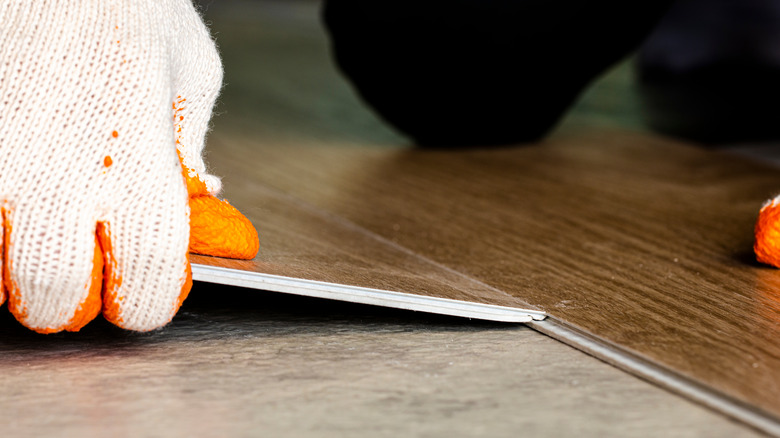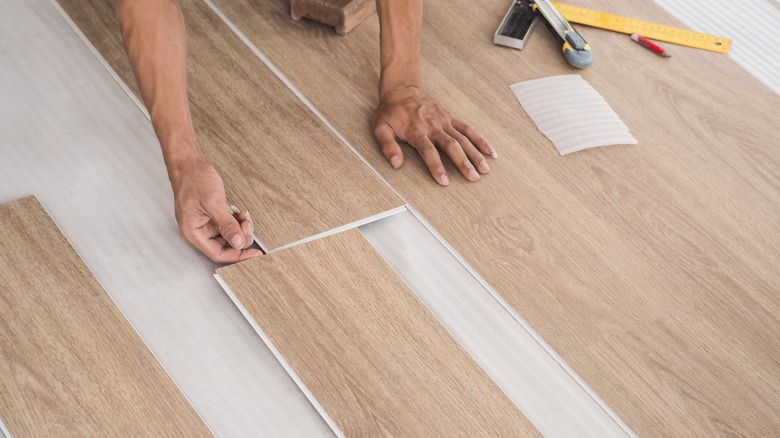Why You May Want To Reconsider Installing Click-Lock Flooring In Your Home
Click-lock flooring seems like a dream, doesn't it? Imagine laying out new floors by just clicking pieces together like a puzzle. No nails, no glue, and minimal fuss — it sounds like a quick and easy way to transform your home. This "snap-it-together" style has gained popularity among DIY fans and busy homeowners alike. While click-lock flooring might seem like a fast and budget-friendly option, it might not be as perfect as it sounds. Whether it's a shorter lifespan, issues with stability and unevenness, or a tendency to get a bit noisy over time, click-lock flooring has its quirks.
The first reason to think twice about click-lock flooring is that it often has a shorter lifespan than other flooring options. Unlike traditional flooring options like hardwood or tile, click-lock flooring can wear out faster, particularly in high-traffic areas. The interlocking mechanism may loosen with time and use, causing gaps or even damage to the edges of each plank. If you have kids or pets, this flooring may get scratched or chipped more easily, leaving you with a floor that shows wear and tear sooner than you'd like.
Another drawback of click-lock flooring is its stability — or lack thereof. Because it's designed to float above your subfloor, it doesn't bond with the surface underneath. This can shift the flooring slightly as you walk on it, leading to an uneven feeling over time. And if that's not enough, click-lock flooring can also be noisy. With each step, especially in older homes where the subfloor might have a little more to give, you might be left wondering what it really means when your floors squeak.
Consider these alternatives to click-lock flooring
So, what are the alternatives if click-lock flooring isn't the ideal choice? One great option is glue down vinyl flooring, which uses an adhesive to secure each plank directly to the subfloor. This means less shifting, no creaks and a firmer feel underfoot. Glue-down vinyl also tends to be more resilient than click-lock options, easily handling high traffic and daily wear. It can come in various designs and styles to match your home, and its longer lifespan means you might save money in the long run.
Engineered hardwood flooring is another excellent alternative that combines the beauty of real wood with a sturdier, layered construction. Unlike traditional hardwood, engineered wood has layers that resist warping and shifting, so it holds up better in humid environments or areas with temperature fluctuations. While installing may take longer than click-lock, the payoff is a durable, attractive floor that adds value to your home. Plus, engineered wood can be refinished multiple times, which helps to extend its lifespan, making it a worthwhile investment for those who want a more permanent flooring solution.
Finally, if you want a floor that's basically indestructible and will survive everything from muddy boots to messy sauce stains, tile might be your best friend. Tile is known for its durability and water resistance, making it ideal for kitchens, bathrooms and other areas where life tends to get dirty. Plus, with the endless array of colors, patterns and sizes, tile lets you unleash your inner artist.

